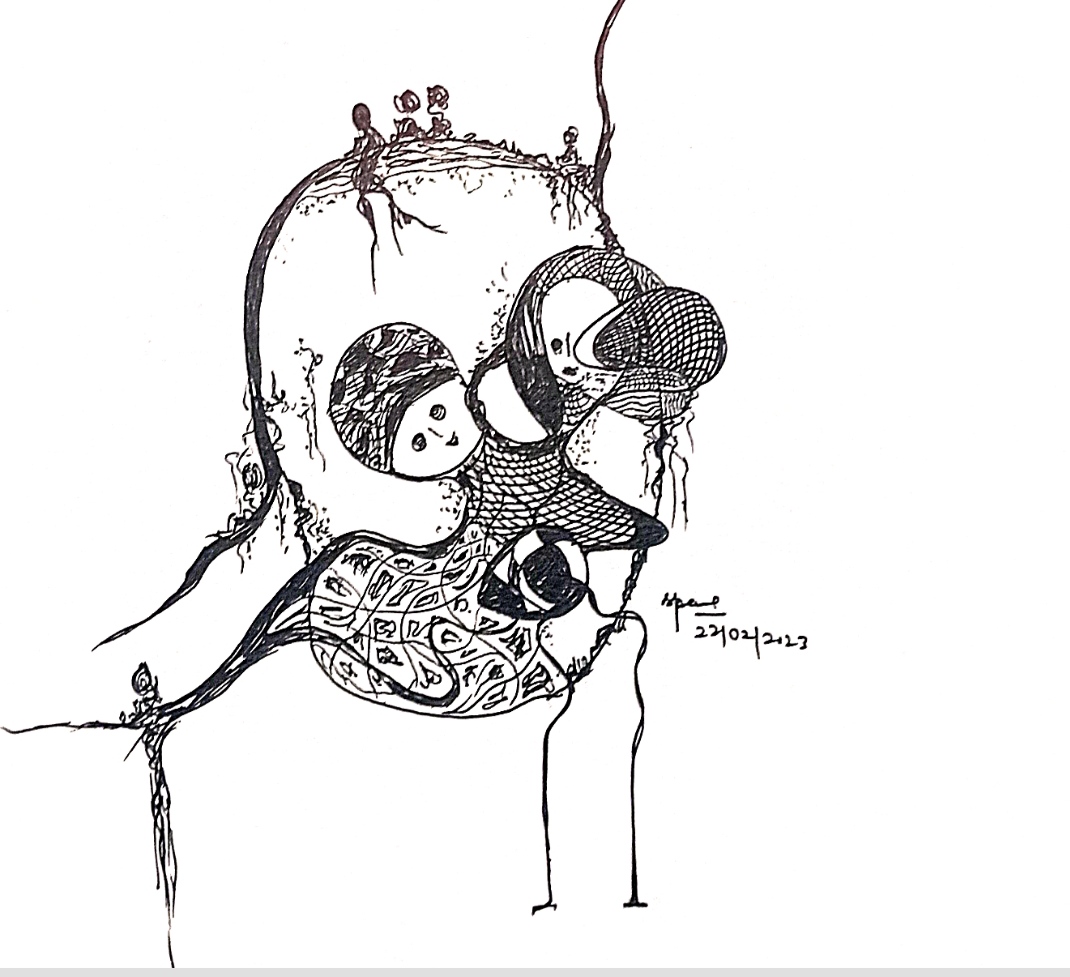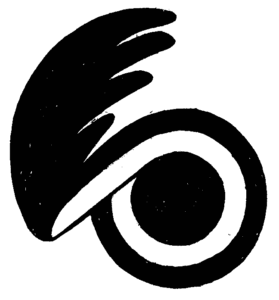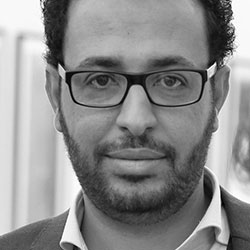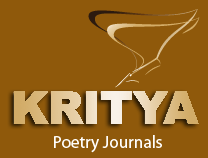
Editor’s Choice
Raed Wahesh

Raed Wahesh belongs to Palestine, but had to leave his country to known reason to everyone. He started living in Syria, but unfortunately there also trouble started. Recently he has come to Germany. Thus he displaced two times. He had to face exile two times in his short life. In contemporary time, we all are watching the suffering of Palestine.
By publishing Raed’s poems, we remember the pain of Palestine. RS
Translated by Hazem Sheikho and Henry Holland
The Exiles’ Streets
Street 1
I know it is 10 am
I know it is the 8th of June
but I’m not actually certain of either of these facts.
I’m not certain
if this is a garden!
And I do not know why its flowers smell of gunpowder! And if those are windows
or dead eyes?
Is this rain or the dribble of someone being tortured?
And that thing soaring swiftly
like a black thunderbolt
(from low to high)
is it a bird or is it a scream?
I know it is 10
this morning or maybe on yesterday morning
or even on a morning of an old year.
But there is really no morning
they’ve kidnapped the sun
and the light remaining cannot pay its ransom to the clouds.
I have known it is 10 for hours
or for days
but I do not know where I am!
Neither does the past pass
nor does the present reveal its presence.
Everything existing is this 10 am,
which turns everything else into mere speculation.
Street 2
To Zaher Abdel Baki
Me, my friend and Malik Ibn Ar-Rayb* were driving down the highway.
It was foggy, so you couldn’t tell the difference
between the car and the camel
between the sand and the ice.
No one uttered a word
me, my friend, and Malik Ibn Ar-Rayb
our photos remained silent
no sound except for the recurring flickering of six eyes in the front mirror.
So when the clouds painted Ar-Rayb’s old ballad,
when it was certain that the whiteness, sustained by moonlight,
had become a page for the night’s burnt letters,
my friend and I realized
on that endless road
that when we had buried Ibn Ar-Rayb,
he had buried us too, in that same poem!
*Malik Ibn Ar-Rayb was a seventh century Arabic poet. He became famous for his bravery as a bandit. Later, he joined the Islamic Army fighting against the Persian rebellion. On his way back home from that military service, he was bitten by a snake. And while the venom was destroying his body, he recited the only poem of his that has endured the test of time, The Elegy of the Warrior. It is considered to be one of the masterpieces of Arabic poetry.
Street 3
(The leader’s ghost):
“bite off her breasts
knife a thousand anuses into her body
and send a photo of them
to her heroic brothers.”
(The soldiers’ ghosts):
“our master,
how can we show photos of the dead to the dead?”
(The leader’s ghost):
“engrave the photos onto their tombstones.”
Street 4
My mother went to my café
she sat there like any one of the old regulars she ordered tea
drank it very slowly
while her eyes searched for my ghost.
Street 5
He loses his bearings every day
when he looks down to the end of a street
and it does not lead to a mountain.
After a minute
he remembers that he left that city
where all streets lead to a mountain.
He loses his compass
and he learns that he who loses a mountain is no longer himself.
He recognizes the curse
Those who lose their mountains
survive only in the mountain’s mirages.
Street 6
Rash in their fear, the soldiers open the check-point to the ghost of sarcastic laughter.
She passes carefree.
They whisper when she disappears:
“mouths were trodden on because of her teeth were broken because of her
jaws were shot at because of her.”
But she remained shameless
And sarcastic.
Raed Wahesh

Raed Wahesh, a Palestinian-Syrian journalist and poet residing in Hamburg, Germany, was born in Damascus. He has been immersed in the world of journalism since 2003, currently nurturing his passion for poetry, which he began at the age of 15. Over the years, Wahesh has published several books of poetry and one book of prose detailing his experiences as a regime critic in Damascus in the war.
As the Syrian revolution unfolded, Wahesh emerged as a vocal supporter, particularly during its initial peaceful phase. His journalistic endeavors were characterized by a keen focus on marginalized perspectives within the Syrian seen. He delved into the political intricacies of the revolution, intertwining themes of gender issues, personal reflections amidst brutality, and the complex emotions of fear and guilt among survivors.
In 2013, Wahesh embarked on a journey to Lebanon on foot, eventually settling in Beirut as an undocumented resident. After a few months, he was awarded a scholarship from the Heinrich Böll Stiftung, which facilitated his relocation to Germany, where he currently resides. This new chapter in his life sparked a transformation in his writing, as he delved into questions of identity and “the other,” “the stranger” the marginalized”, and European cultural centrality, alongside his ongoing exploration of exile.
Since 2015, Wahesh has served as the first editor at Ultra Sawt, a Doha-based Arab website focusing on politics and culture. His recent literary works have revolved around the Syrian war, the individual experience of exile, and the question of identity. Having spent his life as a Palestinian refugee in Syria and now finding himself a Palestinian-Syrian refugee in Germany, Wahesh’s writing is profoundly influenced by the stories and struggles of refugees, permeating both his poetry and journalistic endeavors.
Publications: White Blood, Damascus 2005 (poetry),Nobody Dreams Like Anybody Else, Damascus 2008 (poetry),When the War Has Not Begun, Amman 2012 (poetry),A Missing Piece of Damascus’ Sky, Cairo 2015 (prose), Walking We Meet. Walking We Part, Milan 2016 (poetry), The Year of Ice, Milan 2019 (novel), Book of Passing, Milan 2021 (poetry)

